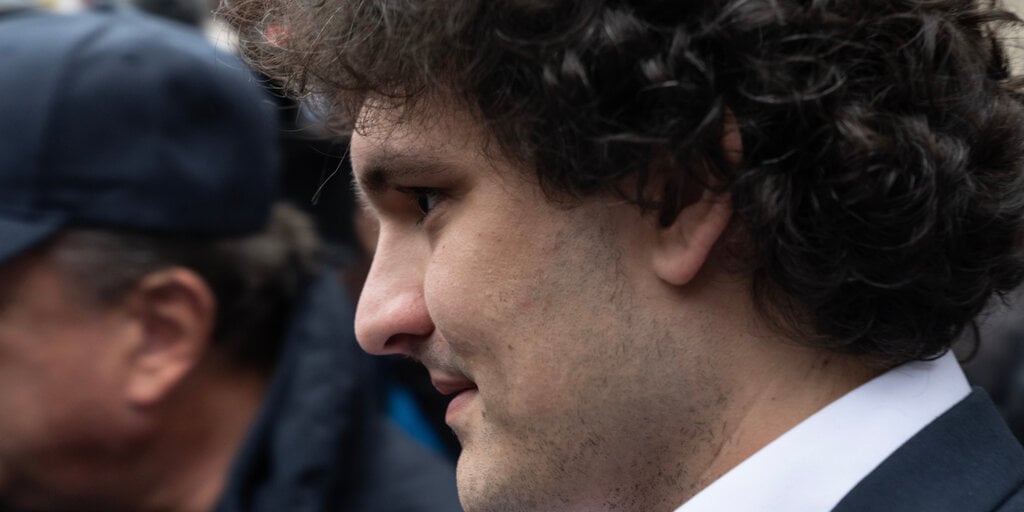FTX founder Sam Bankman-Fried will assert at his upcoming criminal fraud trial that he had no intention of breaking the law, his counsel said Wednesday. To prove it, his lawyers plan to use FTX attorneys who advised him while he was still CEO of the now-defunct crypto exchange.
His defense team plan to call on lawyers from Fenwick & West, alongside members of FTX’s former in-house counsel, such as Dan Friedberg, Can Sun, and Ryne Miller.
Their argument: Before FTX collapsed last November under Bankman-Fried’s leadership, the lawyers “gave him assurance that he was acting in good faith” and were responsible for reviewing elements of his alleged misconduct, according to a court filing.
Earlier this week, Bankman-Fried again pled not guilty to the seven charges filed against him by the Department of Justice. The DOJ amended its complaint to remove charges of campaign finance violations, saying they’ll be handled in a separate proceeding.
The disclosure from his defense attorneys follows a request last week that a judge order Bankman-Fried’s counsel to expand on its so-called advice-of-counsel defense or preclude the tactic from trial. The request was ultimately granted.
“To the extent that it is demonstrated to be accurate, SBF’s reliance on the advice of counsel is a fair defense,” Hunt Ricker of law firm Riker Danzig told Decrypt in a written statement. “The government will be required to show, beyond a reasonable doubt, that SBF had an unlawful intent to commit fraud.”
If Bankman-Fried did indeed receive assurances that any alleged misconduct was legal after making “complete disclosures” to his counsel, a core component of the defense will be showing that Bankman-Fried relied on that advice in earnest, Ricker noted.
“Because ‘good faith’ is a state of mind, this will require a deeper inquiry into what SBF knew or understood about his actions,” he added. “For this reason, asserting an advice-of-counsel defense is also a near certain waiver of the attorney-client privilege, as it may put those communications with counsel at issue.”
Former Assistant U.S. Attorney and Partner at Ford O’Brien Landy, Kevin O’Brien, told Decrypt the strategy could potentially backfire for Bankman-Fried if federal prosecutors get access to more damning information in the event his attorney-client privilege is waived.
“It’s a shot in the dark,” he said. “The chances of this being a viable defense are pretty slim.”
In Wednesday’s filing, Bankman-Fried’s counsel said he received assurance on billions of dollars in loans made with company cash to himself and insiders at FTX and Alameda Research, the exchange’s sister company.
A declaration made last November in FTX’s Chapter 11 bankruptcy revealed that Bankman-Fried got a $1 billion loan from Alameda. More recently, the exchange’s new management said $3.2 billion in payments and loans were doled out to insiders.
One of the lawyers mentioned in the notice who served as general counsel to FTX US, Ryne Miller, came up in Bankman-Fried’s criminal case in January when federal prosecutors raised witness tampering concerns for the first time.
“I would really love to reconnect and see if there’s a way for us to have a constructive relationship, use each other as resources when possible, or at least vet things with each other,” Bankman-Fried allegedly told Miller via an encrypted message.
Notably, lawyers mentioned in the disclosure gave input on a “Payment Agent Agreement” between FTX and Alameda, which the exchange’s new management called a “sham” in a bankruptcy report published in June.
The report said the agreement sought to “legitimize certain improper transfers” and the commingling of assets. Additionally, as FTX contemplated the possibility of going public in 2021, the agreement was allegedly backdated by two years for the purpose of producing audited financial statements.
Other areas that Bankman-Fried received legal assurance on include policies at FTX where messages were automatically erased, the creation of an entity allegedly used to mask transactions called North Dimension, and FTX’s customer agreements.
In a separate lawsuit brought by the Securities and Exchange Commission (SEC), the agency alleged Alameda siphoned off billions of dollars in FTX deposits through its subsidiary North Dimension.
Bankman-Fried’s counsel on Wednesday said there are potentially other areas that lawyers could be called upon for his advice-of-counsel defense. Yet the information included in the document should be sufficient for federal prosecutors, they said.
“Bankman-Fried’s awareness that counsel was involved in the matters listed above and others is relevant to rebut [claims] that Mr. Bankman-Fried acted with criminal intent to defraud,” his counsel said. “These additional disclosures are more than sufficient.”



